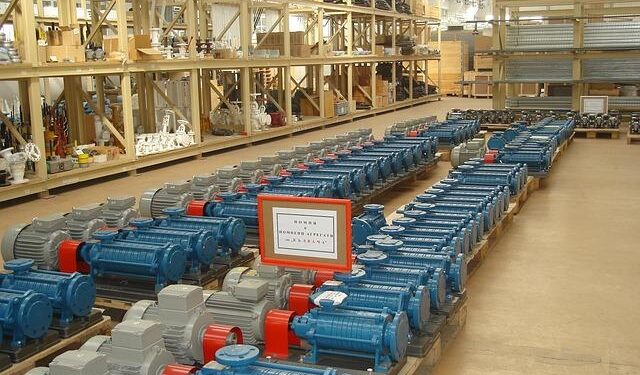Lukoil-Moldova has announced it will grant the Moldovan government free access to its airport fuel terminal, a move unfolding amid tightening US sanctions targeting Russia’s energy sector. The decision comes as Moldova navigates a complex geopolitical landscape, balancing energy needs and international pressure. According to Reuters, the arrangement aims to ensure stability in the country’s aviation fuel supply while reflecting the broader impact of sanctions on regional energy operations.
Lukoil-Moldova Offers Free Access to Airport Fuel Terminal Supporting Government Amid Sanctions
Lukoil-Moldova has taken a significant step to bolster national resilience by offering the Moldovan government free access to its airport fuel terminal amid escalating US sanctions. This strategic move aims to ensure uninterrupted fuel supply for critical infrastructure, including emergency services and public transportation, mitigating the impact of external economic pressures. The facility, known for its high-capacity storage and efficient fuel distribution systems, becomes a vital asset in sustaining the country’s energy needs during turbulent times.
The partnership underscores a collaborative effort to safeguard Moldova’s energy security. Key features of this initiative include:
- Unrestricted fuel storage and delivery capabilities at the airport terminal.
- Priority allocation for government-operated vehicles and essential services.
- Maintenance and operational support provided by Lukoil specialists at no cost.
| Facility Feature | Description |
|---|---|
| Storage Capacity | 10,000 metric tons of jet and automotive fuel |
| Fuel Types Supported | Jet A-1, Diesel, Gasoline |
| Operational Hours | 24/7, including holidays |
| Support Services | Technical maintenance, security, logistics |
Implications of US Sanctions on Moldova’s Energy Sector and Regional Stability
As US sanctions tighten around key energy players, Moldova’s delicate energy ecosystem faces significant disruption. Lukoil-Moldova’s decision to grant free usage of its airport fuel terminal to the Moldovan government highlights an urgent strategical pivot aimed at securing uninterrupted fuel supply routes amidst external pressures. This move may provide a crucial lifeline to Moldova’s aviation and critical transport sectors, shielding them from the ripple effects of geopolitical tensions and mitigating immediate operational risks.
Key consequences of this development include:
- Strengthened government control over essential energy infrastructure, which could reshape market dynamics in favor of national interests.
- Temporary alleviation of energy shortages, supporting both civilian and military logistical needs during a period marked by regional instability.
- Complex diplomatic signaling in the face of US sanctions, potentially affecting Moldova’s relationships with Western allies and Russia alike.
| Aspect | Potential Impact |
|---|---|
| Fuel Terminal Access | Enhanced government oversight, stable fuel distribution |
| US Sanctions | Pressure on energy imports, drive for alternative suppliers |
| Regional Stability | Heightened uncertainty; possible increased dependence on Moscow |
Strategic Recommendations for Moldova to Navigate Energy Challenges and Ensure Supply Security
Moldova’s energy landscape is at a critical juncture following Lukoil-Moldova’s decision to grant free access to its airport fuel terminal amid tightening US sanctions. To mitigate risks and ensure uninterrupted supply, policymakers must prioritize diversification of energy sources, emphasizing the integration of regional partners and alternative fuel suppliers. Strengthening diplomatic ties with neighboring countries such as Romania and Ukraine will be pivotal in opening new import corridors and reducing over-reliance on a single supplier.
Key strategic moves should include:
- Accelerating investments in renewable energy infrastructure to reduce long-term dependency on imported fuels
- Enhancing storage capacity at critical facilities to build strategic reserves
- Implementing transparent regulatory frameworks that encourage private sector participation and attract foreign investments
- Promoting energy efficiency programs to optimize consumption patterns across industrial and residential sectors
Outlined below is a concise overview of priority areas and expected impact:
| Priority Area | Recommended Action | Expected Outcome |
|---|---|---|
| Supply Diversification | Forge regional partnerships & source alternative fuels | Increased fuel security & reduced geopolitical risk |
| Infrastructure Investment | Upgrade terminals & storage facilities | Enhanced emergency stockpiles & operational flexibility |
| Regulatory Reform | Implement clear, investment-friendly policies | Increased private investment & market confidence |
| Energy Efficiency | Launch national consumption optimization initiatives | Lower overall demand & cost savings |
In summary, Moldova’s strategic focus on supply diversification, infrastructure upgrades, regulatory reforms, and energy efficiency will not only shield its economy from external shocks but also promote sustainable growth. Collaborative efforts between government, private sector, and international partners will be essential to navigate current challenges and build a resilient energy future.
If you’d like, I can help you format this further for specific use or create a summary/executive brief!
To Wrap It Up
As tensions surrounding the US sanctions continue to shape the regional energy landscape, Lukoil-Moldova’s decision to offer free use of its airport fuel terminal to the government marks a significant development. The move underscores the complex interplay between geopolitics and energy infrastructure in Moldova, reflecting broader challenges faced by the country amid external pressures. Observers will be closely watching how this arrangement influences Moldova’s fuel supply stability and its diplomatic positioning in the months ahead.















